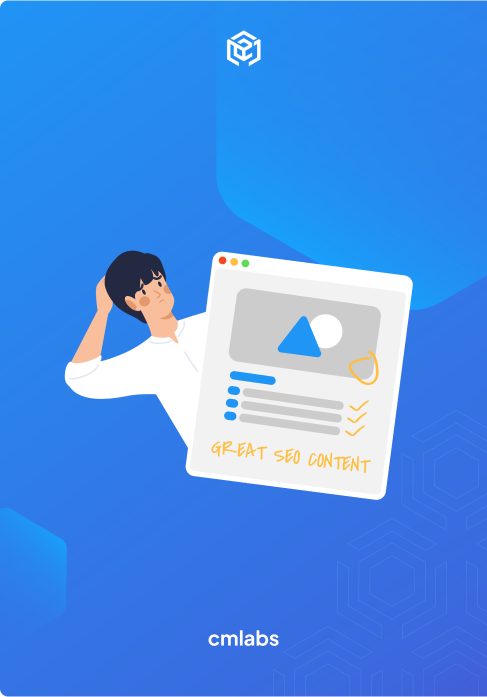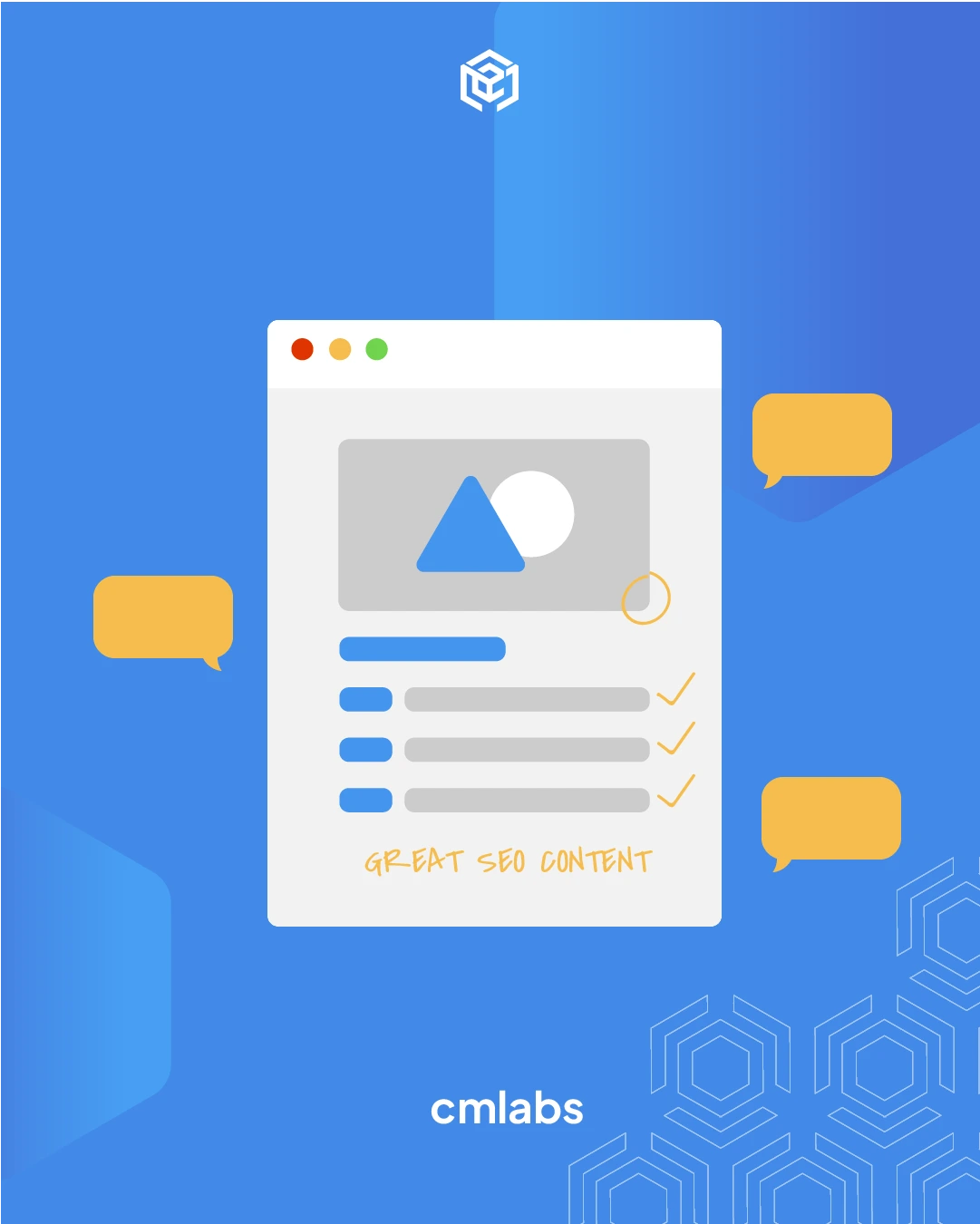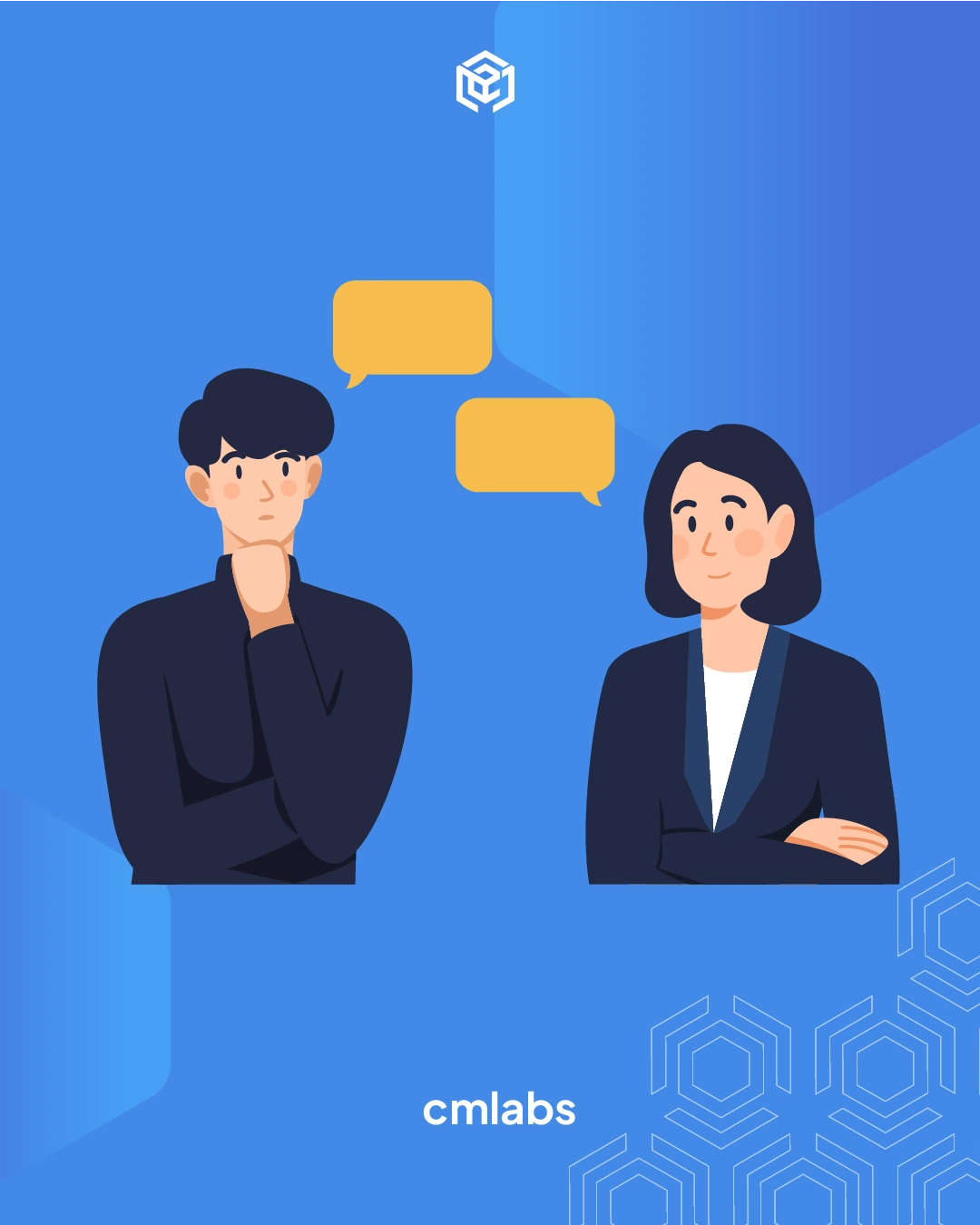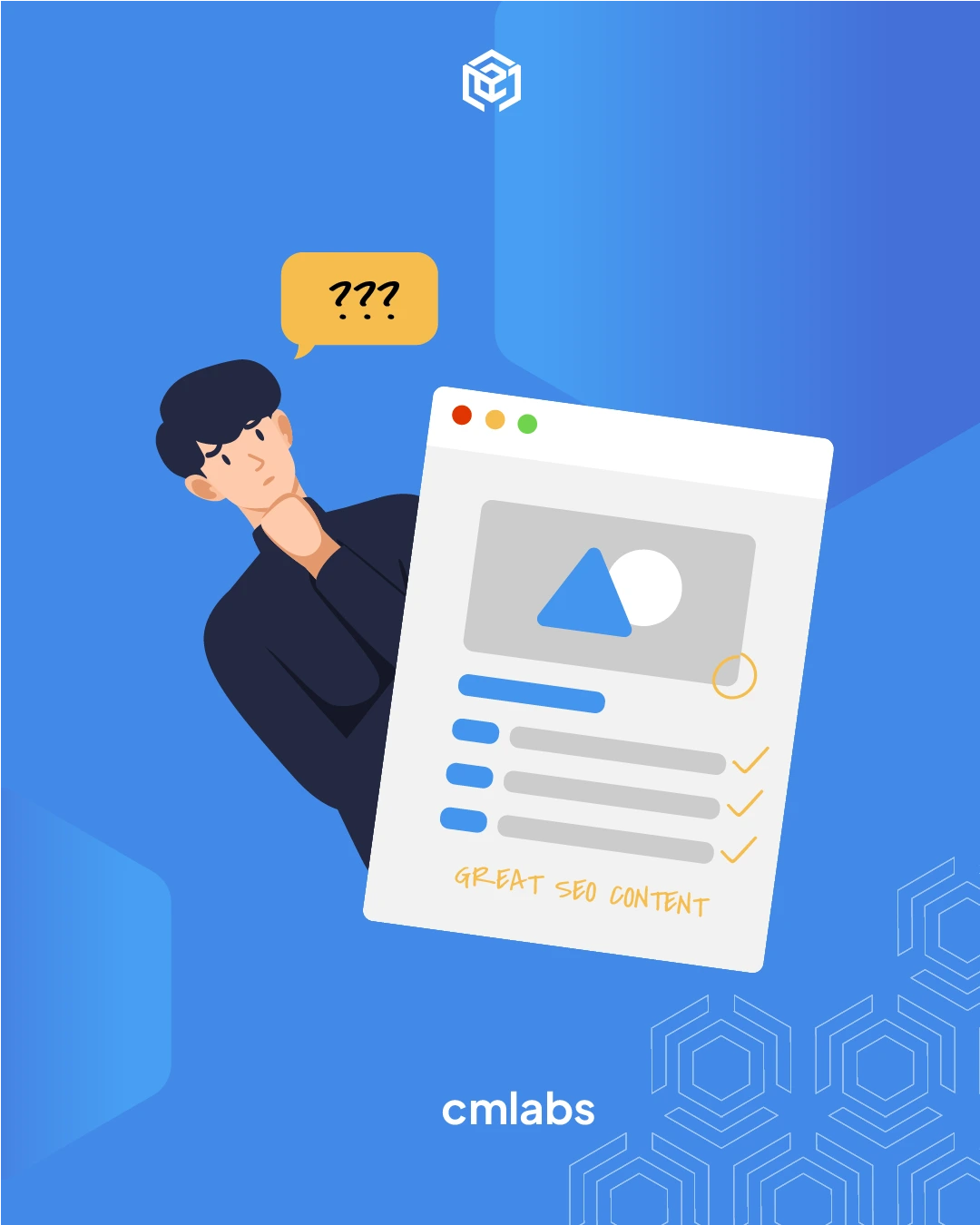We use cookies
This site uses cookies from cmlabs to deliver and enhance the quality of its services and to analyze traffic..
SEO SERVICES
Conduct in-depth technical website audits, strategically develop website projections, and increase your website authority.
ASO SERVICES
Elevate Your App’s Presence with Our Expert ASO Services – Boost Visibility and Drive Downloads!
WRITING SERVICES
We offer a variety of writing services to suit different business necessities. Reach broader audiences or lead specific industries? We've got you covered!
SEOlutions
A unified source of truth!
SEO & Digital Maternity Solution
SEO & Digital Maternity Solution: Leverage Cross-Platform Insights to Elevate Your Strategy with Expert Consultation
SEO & Digital Maternity Solution
Data Solution options:
Starting from Rp200 mio
Reinventing how a company get creative treatments
A new way to get your creative needs done. Agile team, efficient cost, and expedient way in a flexible yet scalable subscription plan!
Creative-as-a-Services
CaaS package options:
Based on Subscription
Pioneer in digital marketing software powerhouse
We’re excited to unveil our new range of Tech Solutions designed to drive your digital success. Whether you’re looking to enhance your website’s performance, streamline your tech stack, or unlock deeper insights from your data, we’ve got you covered.
Starting from Rp250 mio
Our Clients
Research and innovation center for digital transformation
Digital marketing combines technical skills and business knowledge at every stage. For marketing teams, improving budget management efficiency is crucial, as time is an invaluable resource that should be used wisely. At Sequence, we are dedicated to empowering you to optimize efficiency and strategic planning, ultimately enhancing the impact of your digital marketing efforts.
Subscription-based (IDR1,800/keyword)
Our Clients
BeyondSEO
References
SEO Tools for Webmasters
SEO Tools for Writers
SEO Tools
FIND THE SUITABLE PARTNERSHIP FOR YOUR COMPANY
Check out which cmlabs partnership program suits your company
WHITE LABEL SEO
for CorporateYour company is granted exclusive partnership rights to provide SEO services to our important clients, and we will provide a dedicated backend team to support your efforts.
AFFILIATE PROGRAM
for BizdevA new affiliate program is being introduced for skilled marketers and individuals with strong networks, offering commissions of up to 7% for generating profits independently.
DIGITAL AGENCY
for Marketing Partnerscmlabs is an essential partner for digital agencies, providing a unique selling proposition in Search Engine Optimization (SEO).
BACKLINK PARTNERSHIP
for Media / BloggerWe have a vast database of bloggers and media outlets across Indonesia, categorized by region and media type, giving our clients an edge in managing their media and SEO activities.
OFFICIAL TRAINING
We provide ongoing professional development and support to SEO professionals to ensure they are equipped to meet market demands.
JOIN AS CONTRIBUTOR
for Content WriterGreat opportunity for SEO Writers around the world. T&C applied!
ACADEMIC PARTNERSHIP
Through partnerships with universities in Indonesia, cmlabs has helped align academic curricula with industry demands.
Partnership
Sector & Industries
Tell us your SEO needs, our marketing team will help you find the best solution
As an alternative, you can schedule a conference call with our team
Schedule a Meeting?Contact
Survey
We use cookies
This site uses cookies from cmlabs to deliver and enhance the quality of its services and to analyze traffic..
Last updated: Jun 27, 2023
FAQ schema is a type of schema markup used to provide more detailed and structured information about questions that are frequently asked by users.
Some examples of the use of this schema include user guides, frequently asked questions about products or services, and more.
By implementing this markup schema correctly, users can have a better browsing experience.
In addition, using the schema can increase website visibility and CTR.
This is because the information displayed directly on the search results page gives users relevant information and answers their questions without having to click through to the website.
FAQ schema has several significant impacts for SEO and websites. Here are some of them:
This schema markup will display questions and answers directly on the search page.
From there, users can get the information they are looking for without having to visit the website.
This can improve the user experience because users get relevant answers to their questions instantly.
The FAQ schema can be used to mark questions and answers that are most relevant to the website page content.
This will help search engines understand content better and recognize the relationship between questions and answers related to a particular topic.
Thus, website pages can become more relevant and have the opportunity to appear at the top of the SERP rankings.
Users tend to more easily take the desired action when there are no distractions.
The schema markup is a separate web page that you can add more content to without interrupting it.
In fact, this schema markup can also help remove doubts or concerns that often arise at the user's purchase or decision stage with clear and relevant answers on search results pages.
That way, they can be easily influenced to take the desired action.
Implementing the FAQ schema on website pages can have a positive impact on increasing Click-Through Rate (CTR).
Displaying FAQs directly in search results makes your website stand out among other search results.
FAQ snippets will give the impression that your website has authority and insight that is relevant to search queries.
When FAQ snippets are displayed in search results, your website page has more chances of getting more space on the search results page.
Compared to standard search results, FAQ snippets often fill up a larger section.
This will give your page more exposure, making it more visible to users.
The process of creating schema markup involves several important steps. Here's the explanation:
Adding schema markup can be done by entering the code in the website header.
This process will break the content into smaller pieces. These pieces are known as properties.
Currently, there are 1400 schema properties available. However, only four properties are required for the FAQ schema, namely:
The properties entered must comply with schema.org standards. This is very important for schema markup functionality.
To check if the schema markup meets the standards or not, test the properties on the Google Structured Data Testing Tool.
Once learning which properties you need, the next task is to add them to the content. The following are the three methods that you can choose to do it:
Google has created a guide for creating schema FAQs. This guide helps crawler bots properly understand the FAQ content generated.
In this guide, there are several things that must be included in the FAQ content, namely having a list of questions with answers, using one markup, having comprehensive text that is visible to the user, and having all the necessary properties.
Additionally, this guide also explains some of the things that are prohibited in the FAQ content, namely that there is a forum for users to submit responses to questions, intended for advertising as well as content that is explicit, illegal, or hateful.
After adding the FAQ schema markup to a website page, the next step is to validate the code.
Testing the validity of the code can be done using the Google Rich Results Test. This tool will check if the markup meets the requirements and does not have syntax errors.
To do this last step, make sure the markup is properly integrated into the HTML code of the website page.
This condition is very important to ensure search engines correctly recognize and interpret data structures.
However, if there are problems, you must remove the noindex tag, which might block search engines access to website pages, and ensure that there are no pages that are blocked by the robots.txt file.
Once the various constraints have been resolved, you must send a request to Google to crawl it.
WDYT, you like my article?
Couldn't find result for "Mulki" try to search with different keyword
Suggestion:
Tell us your SEO needs, our marketing team will help you find the best solution
As an alternative, you can schedule a conference call with our team
Schedule a Meeting?



cmlabs Jakarta Jl. Pluit Kencana Raya No.63, Pluit, Penjaringan, Jakarta Utara, DKI Jakarta, 14450, Indonesia
(+62) 21-666-04470These strategic alliances allow us to offer our clients a wider range of SEO innovative solutions and exceptional service.

Psst! Hey there, SEO Stats and Tools SEO company! If you've ever planned of conquering the United Kingdom market, you've come to the right place!